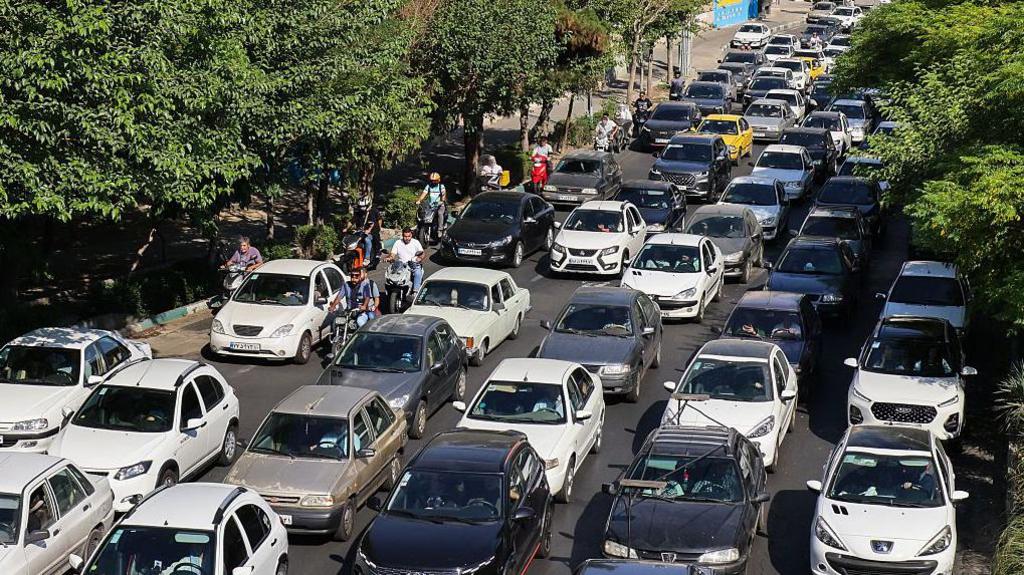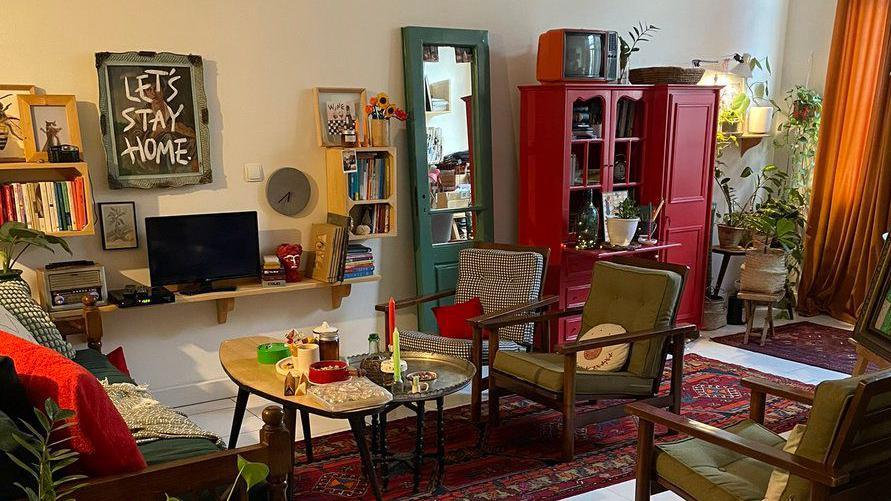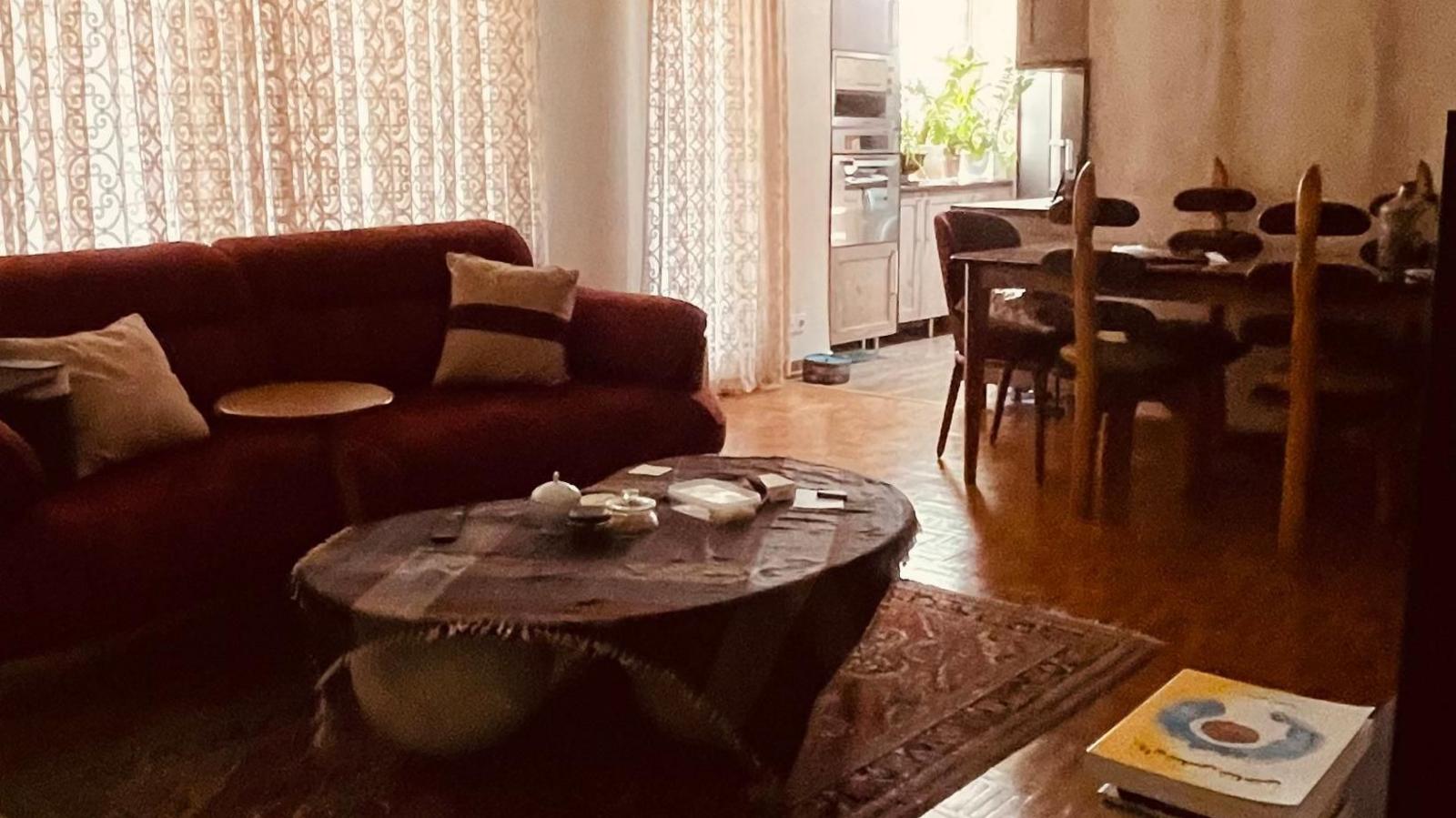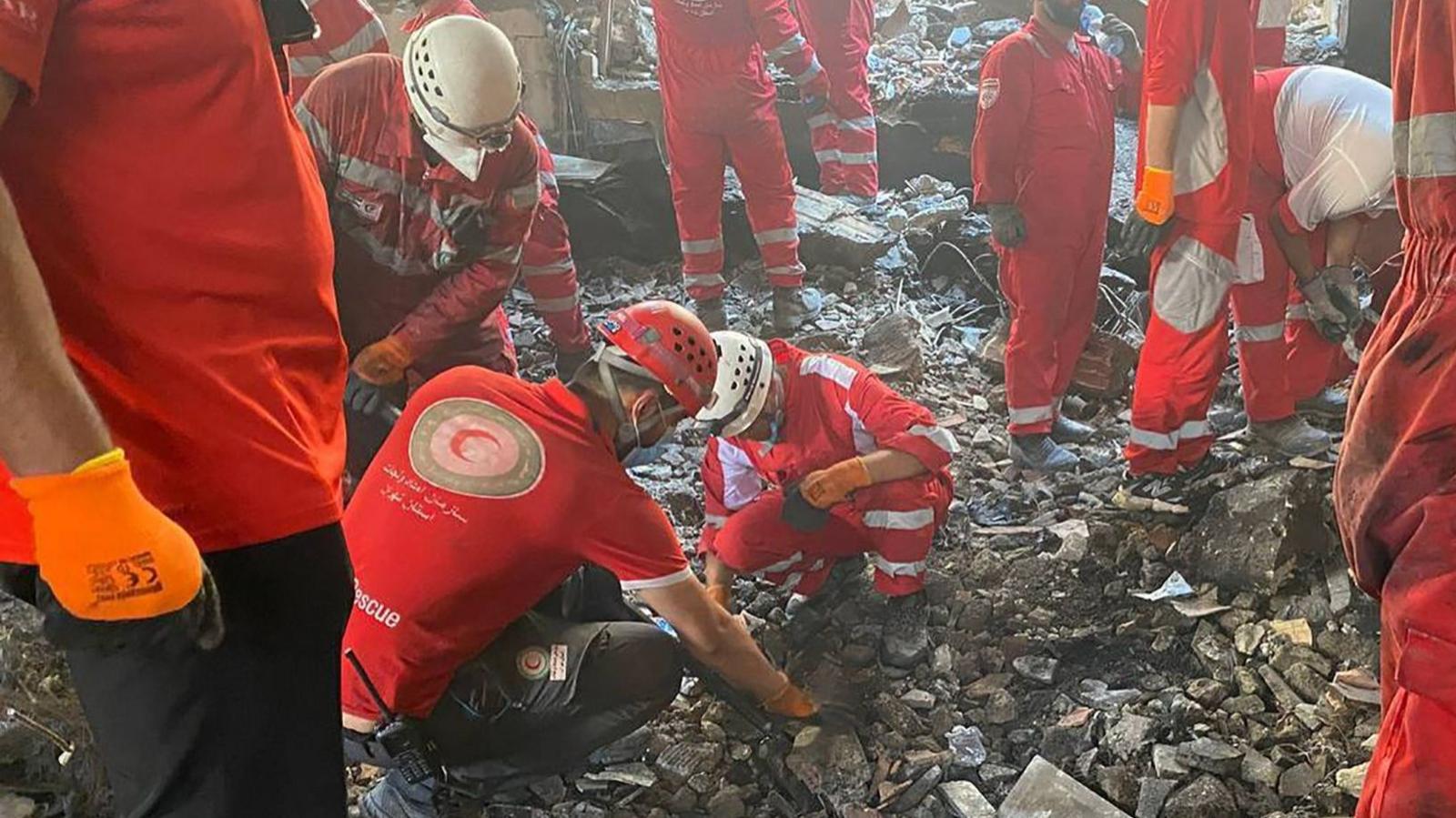Iranians describe fear and sadness over Trump evacuation warning

Traffic congestion has made leaving Tehran difficult as large numbers of people attempt to flee
- Published
Many Iranians have reacted with fear and dismay at Donald Trump's instruction to "immediately evacuate Tehran".
The capital's almost 10 million residents have now been left to decide whether to shelter in their homes - bracing themselves for what could come next - or attempt to join the heavy traffic leaving the country's capital.
President Trump made his comments just moments before cutting short his trip to the G7 in Canada, leaving many wondering if this could mean a further escalation in the conflict between Israel and Iran was imminent.
Many of those deciding to leave Tehran are posting images of their homes online, a poignant trend in Persian-language social media for those leaving their city behind.
Watch: Trump says "it's safer" for Iranians to evacuate Tehran
BBC journalists are currently unable to report in Iran due to restrictions by the Iranian government. However, BBC Persian and other BBC correspondents have received messages from people affected. They have also conducted interviews and monitored social media to gather people's stories. Many fear speaking to media could put them at risk inside Iran, so real names have not been used.
Some Iranians had already taken the decision to leave well before Israel issued the first evacuation order for parts of Tehran on Monday.
One resident, Arash, set off from Tehran at about 08:45 on Monday, driving through the town of Qazvin, in north-western Iran.
A journey that would typically last an hour-and-a-half took him nearly five hours.
"Many, especially those who live abroad, are trying to leave the country," he said.

A picture of a Tehran resident's home posted on social media
Many more Iranians living in Tehran have decided to leave since Monday, braving traffic jams of up to 14 hours and fuel queues to flee - unsure if their homes will still be standing when they return.
It is expected that even more will attempt to make the arduous journey out of Tehran following Trump's comments.
Posting on social media, one resident wrote: "I packed up keepsakes from loved ones and necessities, watered my plants, and hit the road. Leaving home is unbearably hard when you don't know if you'll ever return."
Another said: "My home has never felt this sad. I don't know if I'll ever come back."
One user posted a picture of a workspace, with a computer and headphones, and wrote: "I said goodbye to the things I worked so hard to earn... I hope they'll still be here when I return."
Another added: "I said goodbye in silence, hoping to return one day to my beautiful safe haven."

People leaving Tehran have posted images on social media of the homes they fear they will not return to
'Where would I go?'
Others in Iran's largest city feel the evacuation orders are simply impossible to follow.
Narges has decided to stay in Tehran, despite becoming increasingly afraid. "Ever since Trump urged people to leave last night, it seems like many more are fleeing."
She says the roads are "overflowing" and "the traffic is a nightmare". Narges sees no point in trying to leave and being trapped on the road.
Israel's strikes in Tehran on Iran's state broadcaster on Monday served as a reminder of the risk she is taking. She lives near the headquarters. "It was terrifying, and so close," she said.
Some residents have decided to stay put because of elderly parents, young children, pets, medical needs, or simply lack of options.
One woman told BBC Persian she was pregnant and had a young daughter: "Everything I've built is here… where would I go?"
Another said she was single and did not want to risk undertaking the 800km journey to her family in Shiraz alone.
And a woman who said she was 40 years old and had two small children told the BBC she was "not going anywhere".
"If everything is going to be ruined, then I'd rather my kids and I go with our home - because I don't have the strength to start over again."

Some Israeli air strikes have hit residential areas
Trump's evacuation comments in the early hours of Tuesday were reportedly followed by explosions and heavy air defence fire in Tehran. Iran launched two waves of missiles in response to the Israeli attacks, setting off air raid alerts in parts of central and northern Israel.
Boarding Air Force One after leaving the G7, Trump told reporters that he wasn't flying back to Washington just to broker a ceasefire – he wanted something "better than a ceasefire".
"A real end," he said, which might include "a complete give-up".
Israel launched a surprise attack on nuclear infrastructure, scientists and military commanders on Friday last week.
Israel's strikes on Tehran have killed at least 224 people, according to Iranian state media. Tehran's retaliatory missile strikes against Israeli cities have claimed at least 24 lives, Israeli officials say.
Civilians on both sides have been killed in the exchange of strikes, with both Iran and Israel accusing each other of targeting residential areas.
Additional reporting by Fiona Nimoni